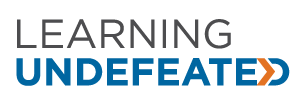Finalists and winners for The EdTech Awards 2025 have been announced to a worldwide audience of educators, technologists, students, parents, and policymakers interested in building a better future for learners and leaders in the education and workforce sectors.
Celebrating its 15th year, the US-based program is the world’s largest recognition program for education technology, recognizing the biggest names in edtech – and those who soon will be.
“Congratulations to The EdTech Awards 2025 finalists and winners! The future of learning is being shaped right now, and those we honor here are leading the way. If there’s one field ready to embrace and lead through change, it’s this one,” said Victor Rivero, who as Editor-in-Chief of EdTech Digest, oversees the program.
The EdTech Awards recognizes people for outstanding contributions in transforming education through technology to enrich the lives of learners everywhere.
Featuring edtech’s best and brightest, the annual program shines a spotlight on cool tools, inspiring leaders and innovative trendsetters across the K-12, Higher Education, and Skills and Workforce sectors.
The EdTech Awards recognize people—and the products they produce and lives they shape— with three main honors:
- The EdTech Cool Tool Awards
- The EdTech Leadership Awards, and
- The EdTech Trendsetter Awards.
FINALIST & WINNERS LIST –
https://www.edtechdigest.com/2025-finalists-winners/
The EdTech Awards were established in 2010 to recognize, acknowledge, and celebrate the most exceptional innovators, leaders, and trendsetters in education technology.
Past winners include Adobe, Claned, Soundtrap, Blackboard, Discovery Education, DreamBox, Edthena, Promethean, Scholastic, SMART Technologies, zSpace and more.
This year’s finalists and winners were narrowed from the larger field and judged based on various criteria, including: pedagogical workability, efficacy and results, support, clarity, value and potential.
Editor-in-Chief of EdTech Digest Victor Rivero said:
“You are the innovators who see the future not as something to react to, but as something to create. Your work is making education more inclusive, accessible, and effective—breaking barriers, unlocking potential, and preparing learners for a world that is evolving faster than ever.”






